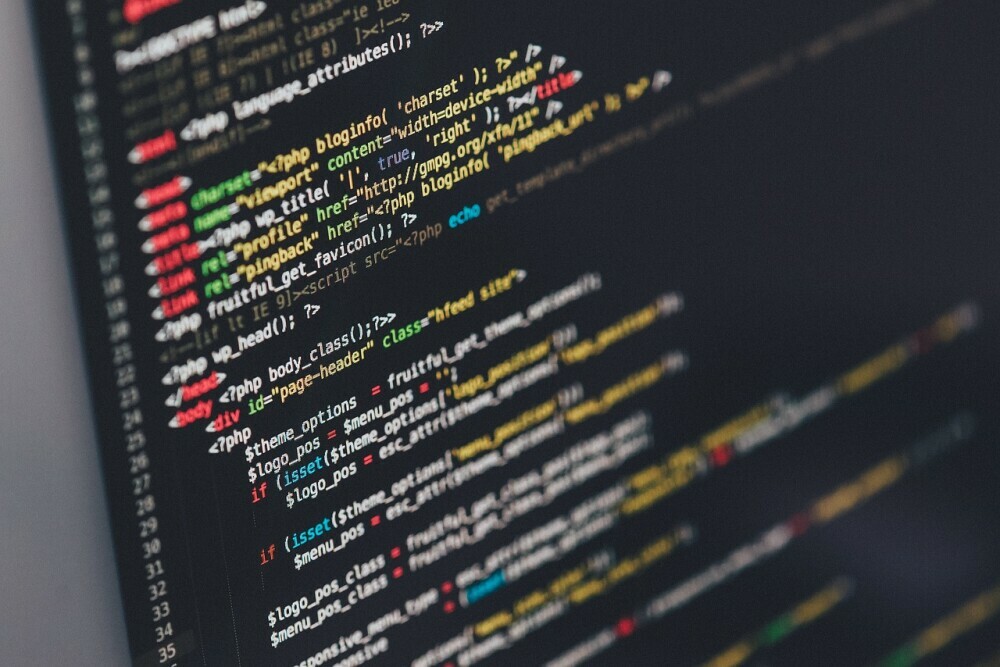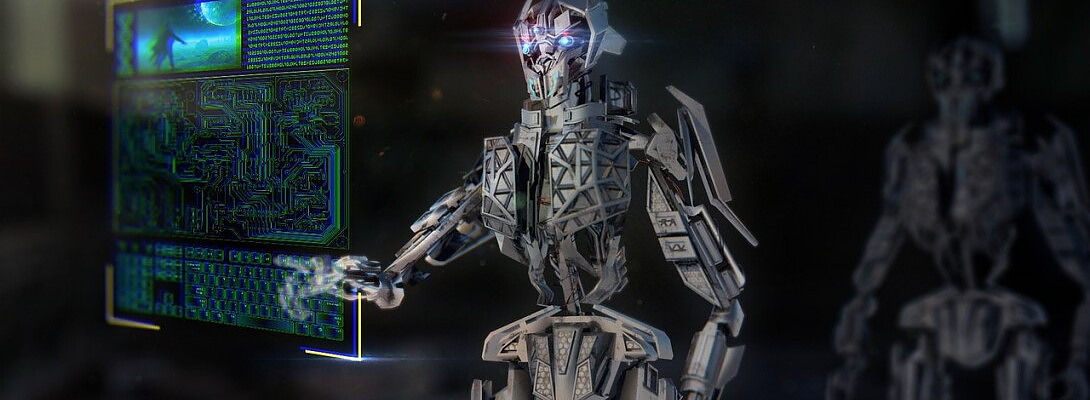Is AI Bad For Diversity?
Few topics have attracted as much attention and controversy as artificial intelligence (AI). In the last year alone, we have witnessed heated reactions and vigorous criticism of AI applications for self-driving cars, face and voice recognition, credit scoring, content creation, and recruitment.
However, one thing is clear: AI is here to stay.
Hilke Schellmann noted in an excellent review I recently read, "...the rise of AI seems resistant to all the adverse public reactions and occasional horror stories of algorithms going rogue or breaking bad. We should find a way to work with AI rather than against it."
Leaders and developers must ensure that strict regulations are put in place, and appropriate ethical guidelines are developed so that AI is adopted only for progress — by which we mean better prospects for all, especially groups and individuals historically disadvantaged.
This begs the question of how AI may impact diversity, equity, inclusion, and belonging, with the objective that disadvantaged individuals can have equal access to opportunities and are not subject to bias or discrimination.
This is where an interesting paradox happens: the opportunity that AI could bring versus the obvious risks most people fear.
On the risk side, we see some real reasons for concern.

USING UNBIASED DATA TO OVERCOME HUMAN BIAS
Unfortunately, many humans are biased by nature. Our propensity to think too fast and fill in the blanks of information by generalizing and jumping to conclusions explains the ubiquity of biases in many areas of social life today.
AI can only be unbiased if it learns from unbiased data, which is notoriously hard to come by.
In one example, looking at just the recruitment arena, for AI to effectively identify suitable candidates for a job, algorithms must be fed or fueled with past data on successful candidates. In most instances, these profiles will consist of high-performing individuals.
A LACK OF DIVERSE TALENT BEHIND THE DESIGN OF AI
The chances of improving diversity increase when you have a diverse team, yet this is a real challenge in AI.
I read that The World Economic Forum reported that about 78% of global professionals with AI skills are male.
To build an unbiased AI solution, the tech sector needs a broader range of perspectives and diversity of thought, mainly to gain awareness of all the potential forces contributing to the (often unwarranted) success of the elite.

USE IT AS AN INCLUSION DIAGNOSTIC
Although diversity is complex, inclusion is even more challenging. Furthermore, diversity without inclusion does not work—and even backfires. Even when organizations attract and recruit diverse candidates, it is not easy to integrate them into their current organizational cultures, ensuring that they are tolerated and celebrated for being different.
AI algorithms need to be trained to spot offensive euphemisms and passive-aggressive mannerisms.
IMPROVE HOW WE MEASURE PERFORMANCE
This is arguably the most significant opportunity to use AI to boost meritocracy and production output. Since most so-called performance metrics (...and throughout my long career, I've seen them all, such as annual performance ratings, job interview ratings, and even 360-degree feedback ratings) which can all become biased and contaminated with politics, nepotism, and privilege, algorithms need to be programmed to learn to quantify the value workers ACTUALLY add to their teams, units, and organizations, with actual data.
This would require identifying patterns connecting what employees (and leaders) do driving organizational outcomes, reducing the current gap between an employee’s career success and their actual performance or productivity.
Since algorithms can be trained to focus on what data matters and can be measured (such as sales, revenues, profits, productivity, innovation, engagement, and turnover) and trained to ignore factors that shouldn’t matter (like gender, race, age, attractiveness, and so on), there is an excellent opportunity to make performance management more data-driven through the use of AI.
AI is not bad for diversity—if diversity is part of the design itself. This would entail strict ethical criteria, like testing for adverse impact and bias, and ensuring it improves the outcome compared with how the selection is made today.
In other words, AI does not need to be perfect to be helpful. It only needs to be better than what we have today.
Thank you all for reading and supporting my blogs!
-Mike
Join FREE & Launch Your Business!
Exclusive Bonus - Offer Ends at Midnight Today
00
Hours
:
00
Minutes
:
00
Seconds
2,000 AI Credits Worth $10 USD
Build a Logo + Website That Attracts Customers
400 Credits
Discover Hot Niches with AI Market Research
100 Credits
Create SEO Content That Ranks & Converts
800 Credits
Find Affiliate Offers Up to $500/Sale
10 Credits
Access a Community of 2.9M+ Members
Recent Comments
62
Great post which gets away from many I have seen that have a knee jerk reaction.
Thanks
Stephen
Thank you, Stephen. I tried to focus on the practicality of the tool, and not the unknown future. I also tried not to promote it or debunk it — I stayed straightforward.
-Mike
Appreciate your share with more information about AI.
Sure is a lot to know about the whole thing, and easier to digest information in small bits.
Thanks,
Sami
No doubt, AI has come to stay.
How we use it and what we use it for will determine many things.
See more comments
Join FREE & Launch Your Business!
Exclusive Bonus - Offer Ends at Midnight Today
00
Hours
:
00
Minutes
:
00
Seconds
2,000 AI Credits Worth $10 USD
Build a Logo + Website That Attracts Customers
400 Credits
Discover Hot Niches with AI Market Research
100 Credits
Create SEO Content That Ranks & Converts
800 Credits
Find Affiliate Offers Up to $500/Sale
10 Credits
Access a Community of 2.9M+ Members

Well said, Mike. I think this post is one of the few posts that catch the essence of AI today and what it can do.
AI is an awesome data cruncher and has to be approached as such.
I might go slightly off-topic with the rest here int the context of dai and diversity, but I feel it is related.
I attended a live discussion hosted by AWAI (American Writers & Artists Institute) on Friday, which was very enlighting on the topic of AI in content creation of different types and in SEO.
The panellist was well-known in SEO, copywriting and content writing and "regular authorship". In other words, everyone has been an expert in their field for several decades.
The common understanding and advice from all the panellists is to jump in on AI and learn as much as possible, as it is a fairly new tool/technology. It is a tool like any other tool. We should use of it in the content creation process to create an extraordinary piece of content with tons of value for your audience. You will get better at what you currently do, and you will be better prepared and more valuable to the market with the additional skills of utilizing AI.
The following three excerpts of what you write are what I feel are central to the question of using AI for different specific purposes.
"...the rise of AI seems resistant to all the adverse public reactions and occasional horror stories of algorithms going rogue or breaking bad. We should find a way to work with AI rather than against it."
"AI can only be unbiased if it learns from unbiased data, which is notoriously hard to come by."
"AI does not need to be perfect to be helpful. It only needs to be better than what we have today."
Again, Mike. A well-written and very good blog post.
Roy
I totally agree, Roy! 👍😎
Frank 🎸
Thank you, Roy!
Also, thank you so much for your thoughts and additional input!
-Mike
That´s great, Frank. I have noticed that the discussion about A.I. here at WA is not taking into account what is happening currently and is one-sided, with A.I. being a negative thing.
Rock on, Frank 🎸🎼
Roy
My pleasure, Mike. I think there is not enough knowledge about A.I. and that many opinions are just opinions and not fact-based.
Good posts like yours are sorely missing on the WA blog roll, with a few exceptions, Boomergp08, and Roope Kiuttu being two of them.
Roy
Absolutely, Roy.
Bloggers have concerns about AI's potentially negative impact on their traffic and its financial implications, but if used correctly, there is a positive and creative side to most anything. 😎
Rock On 🤘
Frank 🎸
Thank you, Roy!
-Mike
I agree, Frank!
-Mike
Thank you for the kind words, Roy!
Appreciate it a lot…
-Mike
I agree, we need to look at the current state, as well as the future to be!
-Mike